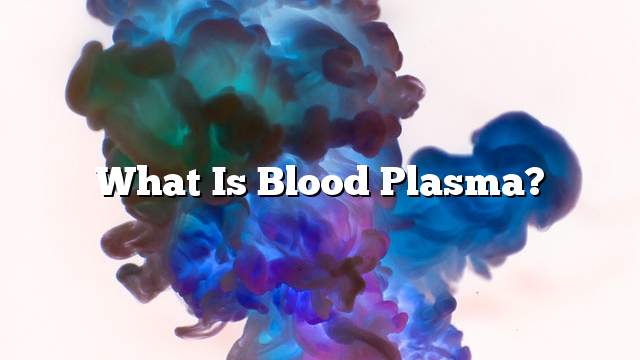Definition of blood
Blood is the red fluid that enters the body of living organisms and can not live without it. It is called the fluid of life because when it passes through every cell in the body, it supplies oxygen and nutrients to it. It also has a great role in the process and vital activities. In the process of breathing, the process of transporting food and waste to and from the body, regulates the temperature of the body, as well as has a very important role in maintaining the water balance within the body and maintain the osmotic pressure of the tissues.
blood components
And so that blood can do all its functions to the fullest, it has a set of components that help him in this:
- Red blood cells: A type of cell that is found in the blood frequently, and in the form of discs concave the sides and the task of transporting gases within the body, to contain the hemoglobin, which earn blood red lipstick.
- White blood cells: White blood cells. These cells are found in the blood less in contrast to red blood cells. They are important because they form the first line of defense within the body. They destroy bacteria and foreign bodies entering the body.
- Platelets: They are substances or bodies in circular form found in the blood, and its task to work on blood clot in the event of any bleeding.
- Blood plasma: It is a very important blood component because it is the one to gain the characteristic of liquidity and ease of movement, which we will talk about in this subject.
Definition of plasma blood
The blood plasma is a transparent liquid that tends to yellowish. The most important characteristic is that it has no shape. It has 55% of the total blood volume in the human body. It is very important for the transport of water, salts, food and hormones. .
Blood plasma functions
Blood plasma has two important functions within the body:
- It works to transport the food needed for the cell from the place of absorption or manufacture to the rest of the body.
- Work on the transfer of metabolic processes within the body.
Blood plasma components
As for plasma components, they are:
- Water: which accounts for 90% of the size of the plasma, and its importance: It acts as a solvent for some substances, and transfers organic and inorganic substances, and it works to maintain the temperature of the body.
- Proteins: which account for 7% of plasma size. The most important of these proteins are:
- * Albumin: accounts for 60% of the volume of plasma proteins.
- Glopiolin: 35% of the volume of plasma proteins.
- * Fibrinogen: The ratio of 4% of the volume of proteins in the plasma.
Other proteins make up 1% of the volume of proteins, such as enzymes, hormones, and other substances.
The importance of proteins is that they regulate metabolic processes, act on blood clotting, defend the body, and maintain osmotic pressure.
- Inorganic ions: Examples include bicarbonate, chlorine, phosphate, calcium, sodium, magnesium, potassium, and its mission is to maintain osmotic pressure and maintain pH.
- Organic substances such as: Carbohydrates, especially glucose, fat, amino acids, lactic acid, and cholesterol. Their importance lies in their use to produce energy for cells and growth.
- Gases dissolved: They are very important for cellular respiration.
